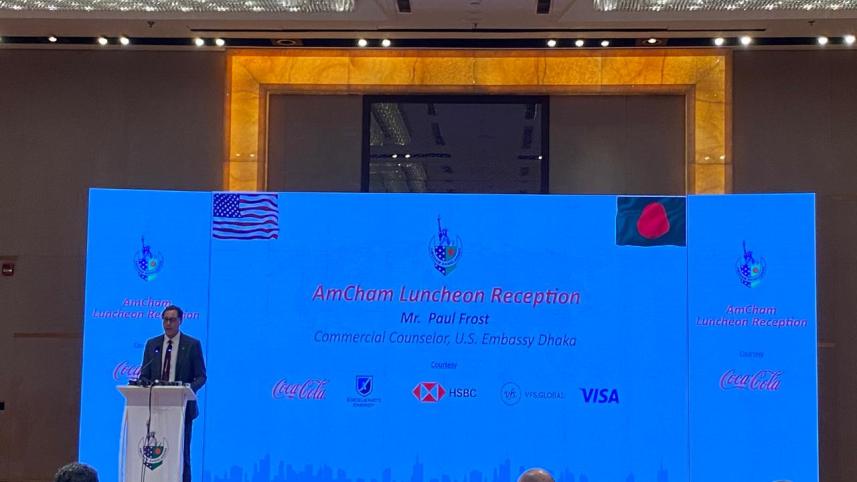US eyes export growth in Bangladesh

The US wants to export aircraft, liquefied natural gas (LNG), and agricultural products to Bangladesh to expand trade between the two countries, said Paul Frost, the new commercial counsellor at the US embassy in Bangladesh.
He made the remarks at an event organised by the American Chamber of Commerce in Bangladesh (AmCham) at Sheraton Dhaka yesterday.
Highlighting the trade priorities of the US, Frost said, "We see opportunities to grow US exports to Bangladesh in many sectors."
"Our priority sectors include power and energy, aviation, agriculture, including cold chain and agricultural technologies, infrastructure development and engineering, defence and security equipment, information communication technology, and healthcare," he said.
"Our office also aims to work constructively with AmCham and government officials to help resolve problems that many American companies face," he said.
"In improving Bangladesh's investment climate, US companies will prosper, and US exports will flow more freely," he added.
However, Frost also said corruption, concerns over financial governance, a complicated tax regime, infrastructure and logistics limitations and excessive bureaucracy were major barriers to trade and business in Bangladesh.
In his speech, AmCham President Syed Ershad Ahmed highlighted Bangladesh's position as an important and promising destination for US trade and investment, where the business relationship has been both favourable and expanding daily.
He also said the US, being the single largest source of foreign direct investment (FDI), brings not only capital but also technology, knowledge transfers, and global best practices that benefit the economy and people of Bangladesh.
He stressed that Bangladesh could attract greater US investment by modernising logistics, simplifying customs, removing non-tariff barriers, strengthening intellectual property rights (IPR) enforcement, and improving labour standards.
He also highlighted emerging opportunities in energy, ICT, renewable technologies, and digital commerce, where US expertise could play a transformative role in creating a more predictable business environment.



 For all latest news, follow The Daily Star's Google News channel.
For all latest news, follow The Daily Star's Google News channel.
Comments